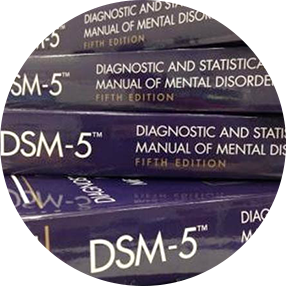Panic Disorder
What is panic disorder?
If you have repeated and unexpected panic attacks, you may have panic disorder. Panic disorder causes bouts of overwhelming fear when there is no specific cause for the fear. In between panic attacks, you may worry greatly about when and where the next one may happen. It can even keep you from leaving your home.
What causes panic disorder?
Panic disorder is a common mental health problem. It often starts in the teens or early adulthood. But it may also begin in childhood. Women are twice as likely as men to have it. There may be a genetic link to panic disorder. It tends to run in families.
Panic disorder may be an overreaction of the body’s normal survival instincts and behaviors. In people with panic disorder, the body may be more sensitive to hormones that trigger excited feelings in the body.
What are the symptoms of panic disorder?
Panic attacks can happen in other types of anxiety disorders, too. Generally, if you have 4 or more panic attacks and if you always worry about having another, you have panic disorder. Symptoms of a panic attack may include:
- Pounding heart
- Sweating
- Trembling or shaking
- Shortness of breath
- Sense of choking
- Upset stomach (nausea) or belly pain
- Dizziness or lightheadedness
- Feeling unreal or disconnected from oneself
- Fear of losing control
- Fear of going crazy or dying
- Numbness
- Chills or hot flashes
- Chest pain and other symptoms that seem like a heart attack
Panic disorder can be upsetting and disabling. An attack can last from a few minutes to an hour. Sometimes it can last longer.
The symptoms of a panic attack may seem like other mental health conditions. Always see your healthcare provider for a diagnosis.
How is panic disorder diagnosed?
Your healthcare provider or a mental health provider may diagnose you with panic disorder based on your symptoms. Generally, if you have 4 or more panic attacks and if you are in constant fear of having another, you have panic disorder.
How is panic disorder treated?
Treatment may include:
- Anti-anxiety and antidepressant medicines
- Counseling, such as cognitive behavioral therapy or group therapy
Treatment for panic disorders is often very effective. Treatment will help you learn to recognize that the symptoms are not life-threatening. You will also learn coping skills and ways to relax. This can help decrease the intensity and length of the panic attack.
Contact Dr. Fogelson’s office to schedule an appointment for a panic disorder evaluation.

